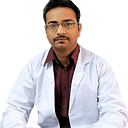Stress and Stress Disorders: Symptoms and Treatment
What is Stress
Stress is the mental and physical response to a number of tasks emotional, cognitive, or social perceived by the person as excessive. Excessive stress can easily lead to numerous stress ailments.
The term stress was first used in 1936 by Hans Selye. He defined it as “the organism’s non-specific response to every request made on it”.
The duration of the stressful event leads to distinguish stress into two categories. The acute one, which occurs only once and in a limited amount of time; the chronicon is when the stimulus is of long duration.
Chronic Stress
Chronic stress can be further divided into chronic stress intermittent and chronic stress properly said. The former occur at regular intervals, have a limited duration, and are therefore more or less predictable. The latter is instead represented by long-lasting situations that affect the existence of a person. They become stressed when they represent a constant obstacle to the pursuit of their goals.
In addition to the duration, the nature of the stressor is also important. We can have beneficial stressors, called eustress, which give tone and vitality to the body. But also harmful stressors called distress, which can lead to a lowering of the immune defenses.
Stressful Factors
The stress can be caused by:
Both pleasant and unpleasant life events (for example marriage, the birth of a child, death of a loved one, divorce, retirement, sexual problems);
Physical causes: abuse of smoking and alcohol, intense cold or heat, and severe limitations in movement.
Environmental factors: the lack of a house, noisy, polluted environments are determining factors of a certain state of stress.
Organic diseases: when our body is affected by a disease, the whole organism, in an attempt to defend itself, places itself in a state of tension which, in most cases, due to the scarce defenses it can provide, leads to a stressful condition.
Stress Symptoms
The symptoms of stress can be divided into four categories.
1. Physical symptoms
- Headache
- Back pain
- Indigestion
- Tense neck and shoulders
- Stomach pain
- Tachycardia
- Sweating of the hands
- Extrasystole
- Agitation and restlessness
- Sleep problems
- Tiredness
- Dizziness
- Loss of appetite
- Sexual problems
- Ringing (ringing, whistling) in the ears
2. Behavioral symptoms
- Grinding your teeth
- Attitude to arrogance
- Increased use of alcohol
- Compulsive eating (nervous hunger)
- Criticize others
- Inability to get things done
3. Emotional symptoms
- Cry
- Huge sense of pressure
- Nervousness, anxiety
- Anger
- Feeling that there is no meaning in living
- Loneliness
- Voltage; feel like you’re about to explode
- Unhappiness without a valid reason
- Feeling powerless to change things
- Being easily agitated or upset
4. Cognitive symptoms
- Trouble thinking clearly
- Inability to make decisions
- Forget things or get distracted easily
- Thinking about running away
- Lack of creativity Constantly worrying
- Memory loss
- Loss of sense of humor
The related psychological disorders to stress are: post-traumatic stress disorder, acute stress disorder, psychosomatic disorders (bronchial asthma, hypertension, colitis, skin eczema, psychogenic alopecia, gastro-duodenal ulcer), fibromyalgia, depression, bipolar disorder, disorders anxiety, sexual disorders, eating disorders (anorexia, bulimia).
How To Cure Stress
In prolonged periods of stress it is very important to have recourse to a doctor, a psychiatrist or a psychologist, to identify, in the first instance through an individual interview, the cause of the patient’s state of mind and implement the most appropriate therapy, as well as the laboratory and/or instrumental tests aimed at excluding that the symptomatology defined by the patient can be attributed to other causes of medical relevance.
Stress is diagnosed with the assessment of a professional. A series of questionnaires will be carried out, the best known being the perceived stress scale.
If you are reading this and having mental health problem then immediately contact the best psychiatrist doctor or best psychologist doctor. He will ask you some questions to know the state of depression and help you with the best solutions.
Conclusion
If you are in depression or stress showing discussed above symptoms, make an appointment with an experienced healthcare professional or the best psychiatrist in Jaipur as soon as you can.
Everything related to depression has cured. And it can be treated regularly with drugs and psychotherapy. You just need to consult your problem with the best psychologist doctor in Jaipur.
